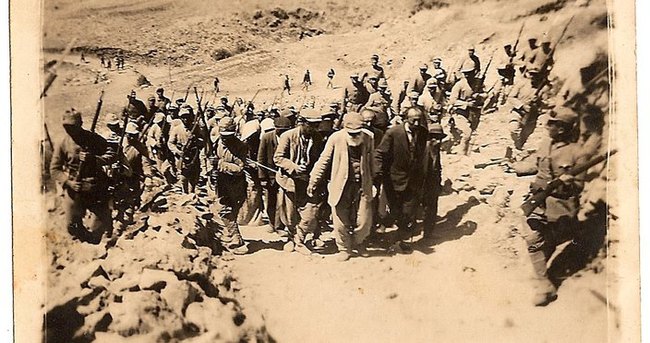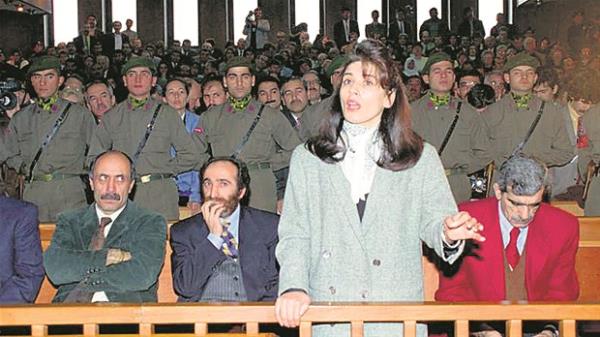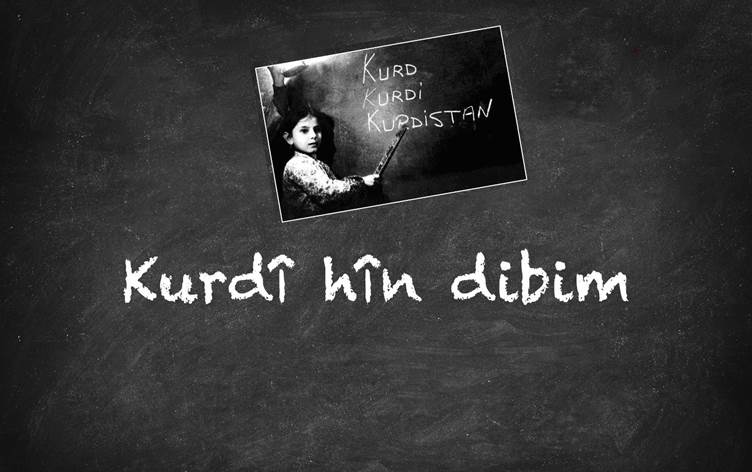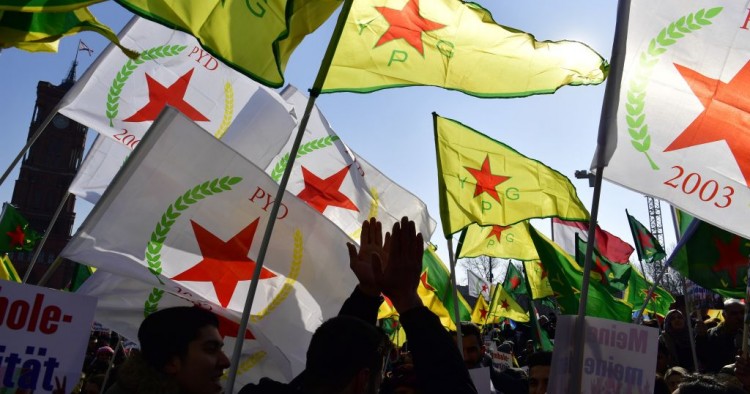Twenty-five years ago, Abdullah Öcalan, the leader of the Kurdistan Workers’ Party (PKK), conveyed a message to the Kurdistan International Lausanne Conference on the 75th Anniversary of the Treaty of Lausanne.
This comprehensive assessment, crafted shortly before his arrest in February 1999, encompasses the very essence of today’s debates surrounding the 100th anniversary of the Treaty of Lausanne.
We republish the translated version of Öcalan’s message, which was originally featured in the Serxwebûn newspaper on 23 July 1998, as its relevance perseveres through time. Subheadings have been added by MedyaNews.
Abdullah Öcalan
23 July 1998
To the International Lausanne Conference!
Dear participants,
This conference, which you are organising to commemorate the 75th anniversary of the Treaty of Lausanne, one of the most unfortunate treaties in the history of our people, is extremely significant. It serves as a crucial foundation not only for the understanding of recent history but also for comprehending the pressing realities and challenges of today, which are further complicated by the Kurdistan dimension.
The genocidal impact of the treaty on the Kurdish people

It presents us with the need for an intensive evaluation not only from a legal point of view, but also in terms of historical, scientific and even moral values, and the requirement to ensure a level of international determination. On this basis, I believe that you have made an appropriate arrangement, and I salute you.
In the history of the Kurdish people, a similarly dangerous treaty was signed in 1639 at Kasr-ı Şirin (1), and the fragmentation [of Kurdistan] it caused and its repercussions still continue today. However, the most serious fragmentation was realised in 1923 when Turkey on the one hand, and Bolshevik Russia and the Western states on the other, became parties to this agreement, which ratified genocide. By relegating some of the Armenian, Assyrian and Greek people to minority status and ignoring the genocide they had suffered, it paved the way for their extinction while turning a blind eye to the dire situation in which they found themselves. It is a historical fact that a fresh genocide was drawn up against the Kurdish People [by this agreement]. Everything that has happened to date confirms this.
The Holocaust of World War II has been extensively examined. Much has been said and done in the field of human rights. It has been assessed through legal means, courts have been established, trials have been conducted, and punishments have been implemented. But are the acts of genocide perpetrated by the Kemalists in Anatolia after World War I in particular less significant than those carried out by the fascists in Germany? Certainly not, in terms of genocide. Not only were they the first but they were also extremely grave.
The unaddressed genocides and the international silence
It is now undeniable: There are no traces left of the handful of peoples who were the rightful owners of these lands for thousands of years, and who bestowed extraordinary cultures on history. Is this not genocide?
The French parliament’s recent recognition of the Armenian genocide is the right stance, albeit belated. However, there are several other acts of genocide to consider. How should we take the right approach against the ongoing Kurdish genocide? Unfortunately, the conscience and law of the international public do not speak out enough for us; they do not utter the right words. These extremely sinister genocidal policies – which have persisted for 75 years – remain on the table unaddressed, in particular due to current economic and military interests, Europe’s economic considerations and Turkey’s alleged strategic position within NATO. It is impossible not to regret this, and most importantly, it is impossible not to deplore the fact that this fact has not been addressed scientifically. There are many reasons why it absolutely must be addressed.
The misrepresentation of Kurds and the role of Europe

It is worth mentioning another point: In that era, İsmet İnönü, one of the Lausanne Conference delegates, brought a few former Kurdish parliamentarians from Diyarbakır (Amed) whose will had been bullied out of them, and who had fully embraced the Turkish identity. They were referred to as the “Kurdish side”, and unfortunately, the case was closed by the division of Kurdistan into four parts in the token presence of one or two Kurds who been subjugated to the Turkish will. And there are still members of parliament who languish in Turkish prisons today simply for speaking a few Kurdish sentences in the Turkish Parliament (2). Turkey claims that it “adheres to European norms”. It has representatives in the European Parliament and the European Council.
Europe especially should stand up for its own values. At the very least, it should pursue a legal path to correct this injustice, because the treaties Turkey has signed do not allow for this. Turkey is allowed too much tolerance, and thus spoilt, has became a wild card that is able to trample on basic European norms, that can do all sorts of things not in accordance with human rights and democratic principles.
I would like to be very clear and draw your attention to the fact that there is a war going on, involving hundreds of thousands of troops and the daily use of helicopters, tanks and aeroplanes. No one can deny that this is a war. But Turkey is able to deny this war it is waging and to avoid the rules of war by presenting it as being about terrorism, under which pretext it persuades the West, and the governments in particular. I urge you to promptly arrange for a conference on the rules of war.
We have accepted the rules of war, the Geneva Convention, but they have not. Why not? Because they are committing serious crimes. When will we see how much they have played with fundamental human values and laws in this deranged war they are waging?
It has become fashionable to hold Hitler to account. But when will you hold today’s most murderous Hitler to account? Europe’s part in this is evident. Although it was perhaps not the intention, in Lausanne, Kemalism became a curse on the heads of the peoples [of Anatolia]. But in essence, the West has placed its seal of approval on the aggression [of Kemalism] by gradually integrating with its interests. I consider it crucial to expose this.
The ongoing war and the international legal system
Kemalism needs to be particularly thoroughly examined in terms of international relations. Just as Kemalism has created a complete cultural and ethnic graveyard in Anatolia by the manipulation of political balances, so it has also played with legal values. And by shedding its past, it has presented itself as a supposedly modern Western regime. We must now tear off this mask; the reality is not as it seems. At the very least, this treaty itself is a legal matter.
What is this treaty according to European law? I pose this question to all of you honourable participants. Can any of you provide an answer or have you considered it? I believe it is an agreement that completely disregards the law, leading to great injustices. You all see this now, even if painfully. What other European law contains such an attack on the existence of peoples? Moreover, Turkish representatives shamelessly say, ‘We represented the Turks and the Kurds.’ How is this representation of the Kurds, when not even a single word of Kurdish is allowed? Unrestrained chauvinism threatens to erase the Kurds as a nation from the stage of history. Here in the Treaty of Lausanne lies both distortion and great abuse.
The deception of Kemalism and the urgency of legal accountability
This needs to be called to account. We must now question İsmet İnönü’s assertion that “these Kurdish representatives support us too”. If the Turkish delegation headed by İnönü also represented the Kurds, what is the situation of the Kurds now? In fact, this is the issue that your conference must focus on the most. It is your duty. Because if the treaty is analysed, it will appear that to some degree it was made with Kurdish representation. However, this was done after breaking the Kurdish will and acheiving the submission [of the representatives]. Some participants resisted this, but their efforts were ineffective at the time. The relevant parties to the Treaty of Lausanne should at least ask Turkey certain questions now. Where now are those of whom you said, ‘the Kurds are also represented here’? And what have you done on behalf of the Kurds? Not even the word “Kurd” is allowed as a representation of the Kurds. We are talking of a people against whom the most brutal and dirty war is being waged in an attempt at complete annihilation. The law absolutely needs to respond to this.
The countries that are parties to this treaty should reexamine it and highlight the fact that it does not grant Turkey the right to govern the Kurds. The Kurdish side too must be vehement about this. The oppression of a people because the balance of power is in favour of the Kemalists has no place in any treaty. There is a hidden agenda at play, and we must expose it. The states that signed this treaty in particular absolutely need to call Turkey to account, because they themselves admit that they did not sign the treaty with this intent. A evaluation was made in relation to the Kurds when this treaty was signed. It is essential that we initiate an inquiry as to what its results were.
Undoubtedly, the esteemed participants of our conference will provide us with valuable insights through their more thorough analyses. We seek to benefit from their expertise and disrupt this game. It is our humanitarian duty. Beyond national liberation, it is a requirement to uphold the most fundamental human rights of our era. Regarding the Kurds as subhuman and depriving them of democracy will lead nowhere.
This problem already overshadows and challenges Europe’s domestic law. In fact, Turkey does not want to abide by any decision taken by the Council of Europe. What does this mean? It does not want to abide by the agreements to which Europe is a party. It does not even abide by agreements it has itself signed. It started this in Lausanne. It has come to today by repeatedly exploiting Lausanne. That is why I say that it is high time to say “enough”, and for the law to speak.
The deafening silence of academia

Undoubtedly, there are certain words that need to be spoken from a scientific standpoint. Kemalists claim that this agreement is highly progressive, even the best agreement for peoples and nations. However, it becomes evident that they are telling a great lie. It may have given something to the Turkish nation (though even that is not substantial; the agreement is not democratic) but it did not grant democracy to the Turkish people. Instead, it became a stepping stone for the unrestrained chauvinism of the Kemalists. Moreover, this agreement failed to provide anything meaningful to the diverse cultural values and minorities of Anatolia. Concessions promised on paper were never implemented [by the Kemalists/Turkey]. As for the Kurds, it gave them nothing but massacres. Kurdistan was plunged into a bloodbath from 1925-1940, before the ink of the agreement had even dried. No respect was shown here for any law. In short, it is incorrect to call this agreement progressive. Rather, it served the ambitions of a dictatorship akin to that of Hitler and Mussolini. Now is the time to speak the truth.
Unfortunately, since Turkey was included in the European alliance system in this way, a much graver situation has emerged. It is now imperative to call a halt to this. We need to draw conclusions by comparing the actual provisions of the treaty, to which Europe is a party, with the democratic principles based on human rights that Europe adheres to today in relation to Turkey. At the very least, Turkey needs to be reminded, and in a serious manner, that it must abide by these agreements. Economic and strategic interests should not be used as excuses to avoid this grave situation.
What is evident in the 75th year [of the Treaty of Lausanne] is that this treaty is extremely reactionary, contrary to human rights, anti-democratic, and in conflict with the general norms of law. It has been used in a detrimental way against the interests of peoples and sets a particularly negative example on the international stage. Even if this might not have been the original intention, it is of great importance to re-analyse it, bring it to the forefront, and make some changes in favour of the peoples. We should be aware of how the Kemalists have exploited it in the past and how they seek to represent it today. This applies to the Turkish people as well. It should be clear that the regime is not in consensus with its own people in line with the spirit of this agreement.
Therefore, it is of great importance that your conference comes up with a draft alternative agreement. This conference, which you have organised in Lausanne and on the anniversary, should respond, albeit symbolically, to the consensus of an alliance of peoples on fundamental rights. In this 75th year, all human rights and democracy-related issues that this treaty has failed to fulfil should be expressed and solutions presented by your conference. And these should be transformed into a draft document and presented as an option to the world public, especially to the peoples of Anatolia.
The urgent call for an alternative treaty
It remains to say that Turkey is currently facing a severe crisis, and discussions about the future of the republic are intense. The President of Turkey is advocating for the restructuring of the state on a daily basis, while the political system is at a complete standstill.
It is evident that the Treaty of Lausanne has failed. I am not alpone in saying this; even high-ranking representatives of the regime acknowledge it. However, they have turned it into a matter of pride and are engaged in a dirty war, in which they are complicit. They refuse to admit to the crimes they have committed because they extend to acts of genocide, they cling firmly to their positions and are determined to resist until the end. In the face of this situation, humanity must not abandon the Kurdish people. We have to assess the issue of genocide in the context of human rights and democracy, which is perhaps the most critical concern that needs to be addressed on the international stage.
We see the adoption of the Armenian Genocide Law by the French Parliament as being of significant importance, and there should be consequences from it. Certain fundamental rights of peoples need to be restored, and international law supports this. The international conscience, personified particularly in intellectuals and scientists, bears a great responsibility in this matter. We should not evaluate everything solely on the basis of self-interest. Moral principles have always existed throughout human history and will continue to do so. It is crucial to view matters from a moral perspective. The root cause of many disasters lies in purely strategic approaches, and the narrow economic viewpoint has severely damaged society and the environment today. The issue of genocide in the Kurdish context is either being overlooked or tacitly approved. It is essential for morality and ethical principles to intervene and put an end to it.
It remains to say that Turkey, in its current state of depression, has little or nothing left to give economically and strategically to the circles on which it depends. If things continue in this way, it will become top-heavy and capsize. The interests of the West will suffer great blows both strategically and economically. The recent agreements between Turkey and Israel, entered into against the peoples of the Middle East, to a great extent expressing hostility to them, based on military superiority and sadly supported by the United States, are particularly dangerous. They are an attempt to reach a conclusion by throwing the balances of the region into chaos and constantly developing military superiority. This is the opening of a new door to disaster, and the events in South Kurdistan are an indicator of this.
Moreover, because of this treaty, Turkey is not getting any closer to a political solution. It blatantly ignores the decisions made by the European Parliament and Council, which are legal documents. Indeed, Europe should be able to demonstrate its power in this matter. It should act with a sense of responsibility for the consequences and display the words and attitudes that need to be expressed today. This is not only our right but also Europe’s legal obligation. I believe that the esteemed participants of this conference will express all these issues in a clearer and more scientific manner, while also considering the moral aspect. Most importantly, as the Treaty of Lausanne has reached a deadlock and is not conducive to progress, your presentation in Lausanne in its 75th year of a new initiative defining the basic principles of an alternative, contemporary legal document, particularly in line with the framework adopted by the European Union, will be an extremely valuable contribution. It is an absolute necessity to discuss a new law for peoples. Moreover, we are fighting a war. This war is a war to resist genocide. I would like to state that you will play an indispensable role by incorporating our struggle into a conference based on European norms as a contribution to a political resolution and the gradual establishment of a new law for peoples.
Responsibility to repair the damage of the treaty
 We are ready to halt this war at any time and, if necessary, to take a step towards a treaty that embraces all the norms of our time. It is really in the interests of all humanity, especially the states that are signatories to this treaty, and even in the interests of Turkey to do so. In our opinion, this is of great importance and it is time to place the current Treaty of Lausanne, which has reached a deadlock and caused considerable harm, on the path of a political solution. This [solution] should compensate for [the Treaty’s] deficiencies and transform it into a consensus under the patronage and to the benefit of all states, so as to benefit even Turkey. In this regard, we are prepared to offer our contributions with all sincerity.
We are ready to halt this war at any time and, if necessary, to take a step towards a treaty that embraces all the norms of our time. It is really in the interests of all humanity, especially the states that are signatories to this treaty, and even in the interests of Turkey to do so. In our opinion, this is of great importance and it is time to place the current Treaty of Lausanne, which has reached a deadlock and caused considerable harm, on the path of a political solution. This [solution] should compensate for [the Treaty’s] deficiencies and transform it into a consensus under the patronage and to the benefit of all states, so as to benefit even Turkey. In this regard, we are prepared to offer our contributions with all sincerity.
The real parties, especially the Kurdish side, have now emerged. The need for human rights and democracy for Turkey has clearly emerged in both the Parliament and the Council of the European Union. We are ready to share the requirements of all these. Therefore, it is important to think and draft proposals for an alternative [Treaty of] Lausanne in the light of current developments.
Your conference can take a step in this regard and make it permanent in the future, and it can also come to a conclusion in the form of [the need for] a ‘follow-up committee’ in order to realise its results. The period calls for an alternative endeavour to keep Turkey bound to such an agreement if it is to be included in the European Union, which would be in the spirit of the decisions taken. I reiterate my belief that this should not be postponed.
I would like to express my sincere agreement with any proposals you will bring on the basis of this and conclusions you will reach from the enlightenment you will bring to the issue within this framework. I wish you success and I extend my greetings and respects.
(1) The Treaty of Kasr-ı Şirin was signed in 1639. This treaty marked the end of the war between the Ottoman Empire and the Safavid Empire (Persia) and resulted in the redrawing of the borders between the two empires, effectively dividing Kurdistan. The Treaty of Kasr-ı Şirin was a pivotal agreement that shaped the territorial boundaries in the region during the 17th century. It established a lasting peace between the two powers, albeit at the expense of some territorial losses for the Safavids. The treaty was signed in Kasr-ı Şirin, which is located in present-day Iraq, near the border with Iran. (2) Referring in particular to Leyla Zana. Zana became a leading campaigner for Kurdish prisoners in the 1990s. She was first elected to parliament in 1991, becoming Turkey's first woman Kurdish MP. Back then, she caused an outcry in Turkey's parliament when she spoke Kurdish while taking the parliamentary oath. She spent ten years in prison, from 1994-2004.










